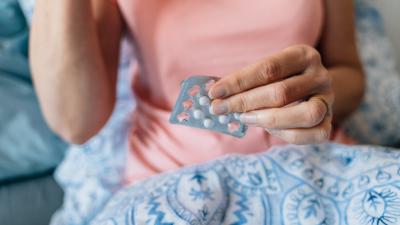Eating a Plant-Rich Diet May Help Against Endometriosis, Finds New Scientific Review

WASHINGTON, D.C.—Eating a plant-rich diet, along with other nutrition interventions including avoiding meat and consuming seaweed, may help against endometriosis, according to a new scientific review from Physicians Committee for Responsible Medicine researchers published in Frontiers in Nutrition.
“Eating meat and fatty foods may lead to excess estrogen in the body, which can cause endometriosis pain to flare, while fiber—found only in fruits, vegetables, grains, and beans—may help reduce pain by flushing excess estrogen out of the body,” says Hana Kahleova, MD, PhD, director of clinical research at the Physicians Committee for Responsible Medicine. “Seaweed may also help suppress estrogen levels.”
Endometriosis, which affects roughly 190 million women and girls of reproductive age globally, is characterized by the presence of endometrial tissues outside the uterine lining, typically on the external surface of the uterus, the ovaries, fallopian tubes, abdominal wall, or intestines. Common symptoms include severe pelvic pain, menstrual cramps, genital pain during or after sex, fertility complications, fatigue, low back pain, bloating, constipation, and diarrhea.
Higher levels of estrogen circulating in the body can worsen the pain and inflammation associated with endometriosis. Consuming red and processed meat, which may be associated with increased estrogen levels, has been shown to increase the risk of endometriosis, according to several studies.
The Nurses’ Health Study II showed that women consuming more than two servings of red meat per day had a 56% greater risk of endometriosis, compared with those consuming less than one serving of red meat per week. Increased poultry intake was also associated with higher risk of endometriosis. Another study found that a higher intake of beef, other red meat, and ham was associated with an increased risk of developing endometriosis.
Reducing dietary fat and increasing dietary fiber, which is found only in plant foods, has been shown to reduce estrogen levels by about 10-25%. Plant-based diets are typically lower in fat and higher in fiber than ones including animal products. In a clinical trial of women with menstrual pain, a low-fat vegan diet was associated with increased plasma concentrations of sex-hormone binding globulin, which, in turn would be expected to reduce estrogen activity.
Research shows that vitamin C, which is found in citrus as well as other fruits and vegetables, and vitamin E, which is found in nuts and seeds and certain fruits and vegetables may also reduce endometriosis symptoms.
Seaweed may also be beneficial. A study in healthy postmenopausal women found seaweed consumption lowered estrogen levels. A case study of premenopausal women found that intake of bladderwrack, an edible brown kelp, reduced estrogen levels. While these studies suggest the potential benefits of seaweed consumption on estrogen concentrations, the effects on endometriosis await further research.
The authors say it is not yet known how universal the benefits of a healthy plant-based diet will be for women with endometriosis, and further studies are in progress.
Media Contact
Michael Keevican
202-527-7367
mkeevican[at]pcrm.org
Founded in 1985, the Physicians Committee for Responsible Medicine is a nonprofit organization that promotes preventive medicine, conducts clinical research, and encourages higher standards for ethics and effectiveness in education and research.








